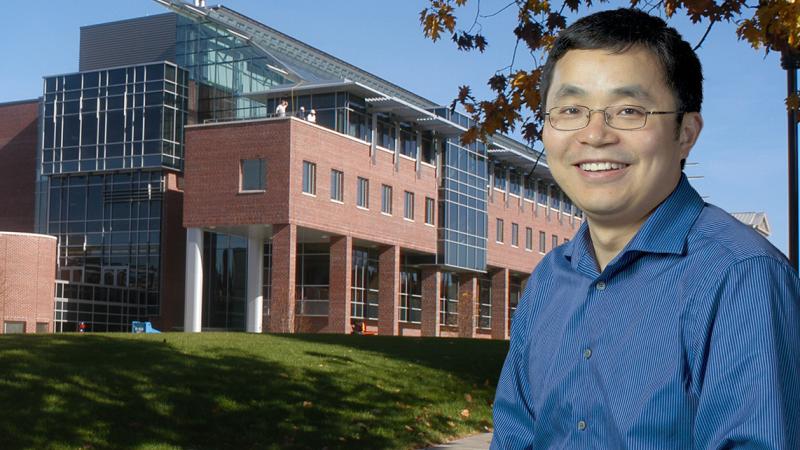Biomedical Engineering Expert Recognized for Research Into the Impact of Cell Asymmetry on Human Development and Disease
August 13, 2013

Tissue engineering and stem cell expert Leo Q. Wan, assistant professor in the Department of Biomedical Engineering at Rensselaer Polytechnic Institute, has been named a Pew Scholar in the Biomedical Sciences by The Pew Charitable Trusts. Additionally, Wan recently won a prestigious Faculty Early Career Development Award (CAREER) from the National Science Foundation (NSF).
“We congratulate Dr. Wan for being selected as a Pew Scholar in Biomedical Sciences, an honor reserved for the most promising young faculty in the biomedical field,” said Rensselaer Provost Prabhat Hajela. “We are extremely proud of Leo for being named a Pew Scholar, as well as his recent CAREER Award from the National Science Foundation, and we look forward to his continued development as a leading scholar and researcher. Leo’s recent recognitions are further evidence of the very high caliber of faculty we are attracting to Rensselaer.”
Wan received his bachelor’s degree in theoretical and applied mechanics and his master’s degree in fluid mechanics from the University of Science and Technology of China. He earned his doctoral degree in biomedical engineering from Columbia University. He served as a postdoctoral researcher at Columbia before joining the Rensselaer faculty in 2011.
The Pew Scholar in Biomedical Sciences program is highly competitive, awarding recipients $240,000 over four years to pursue their projects without direction or restriction. Wan will use this funding to further his research on biomolecular processes of epithelial cell chirality, and investigate how organisms adopt consistent left-right positioning—or “handedness.” He aims to uncover the rules that govern left-right asymmetry in tissues and organs during development, and use this information to better understand genetic diseases and birth defects associated with asymmetry.
Wan’s recent NSF CAREER Award is titled “Biomechanics of Patterned Epithelial Chiral Morphogenesis.” He will use the five-year, $400,000 grant to employ a combination of micro-fabrication, live cell imaging, molecular assay, traction force measurement, and mathematical modeling toward his goal of understanding and detailing the impact of cell mechanics of “handedness” on development and disease. The CAREER Award is given to faculty members at the beginning of their academic careers and is one of NSF’s most competitive awards, placing emphasis on high-quality research and novel education initiatives.
A dynamic young voice in the field of biotechnology and biomedical engineering, Wan has been honored by several other organizations for his research. This year he was recognized with an American Heart Association Scientist Development Grant, the Cellular and Molecular Bioengineering Conference Rising Star from the Biomedical Engineering Society, and the Young Investigator Award from the Frontiers in Bioengineering Workshop.
For additional information Wan’s research at Rensselaer, visit:
- Wan Laboratory for Tissue Engineering and Morphogenesis